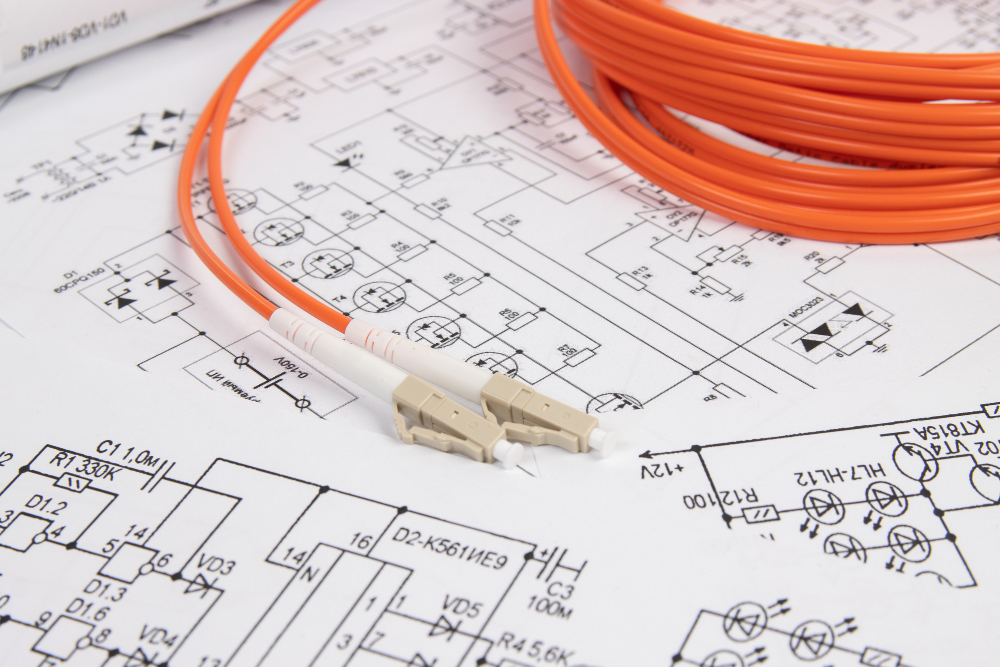It powers everything from smartphones and satellites to energy grids and electric vehicles. If you're interested in how electricity, electronics and digital systems work, and want to build the tools and technology of the future, Electrical Engineering could be the right course for you.
This degree combines physics, maths, computing and hands-on problem solving. It’s ideal for students who enjoy working with systems, circuits and ideas that connect theory with real-world innovation.
What Is Electrical Engineering Like at University?
Electrical Engineering is a practical and technical subject. At university, you’ll learn how electrical systems are designed and how to build, test and improve them. You’ll cover topics like circuits, control systems, power generation, signal processing and microelectronics. You'll also use software tools for simulation and design, and develop programming skills.
There’s a strong emphasis on both theory and practical application, so you’ll spend time in labs, on projects and working with real components and systems. Many courses also give you the chance to work on industry-style challenges or placements.
What Will You Study?
Most courses start with core engineering principles and then allow you to specialise later on. Topics you might study include:
Electrical Circuits and Systems
You’ll learn how electrical components like resistors, capacitors and transistors work together in systems. You’ll design and analyse circuits for various purposes, from household electronics to complex machines.
Digital and Analogue Electronics
You’ll explore how data and signals are processed in computers, phones and other devices. This includes learning about microcontrollers, logic gates, sensors and embedded systems.
Electromagnetics and Power Systems
This includes how electric and magnetic fields behave, how motors and generators work, and how power is generated, transmitted and distributed.
Control Systems
You’ll study how to make machines and systems behave in controlled, predictable ways. This is key in everything from robots to aircraft autopilots.
Signals and Communication
This area covers how information is transmitted, including wireless networks, audio and image processing, and telecommunications.
Programming and Software Tools
You’ll gain skills in coding, often using languages like Python, MATLAB, C or VHDL, and use tools for design and simulation.
Project Work
Most degrees include design projects and practical challenges. In later years, you’ll typically work on an individual or group project where you build or prototype a system or device.
Some courses also offer optional modules in areas like renewable energy, robotics, biomedical engineering or artificial intelligence.
How Long Does It Take and What Are the Options?
In England, Wales and Northern Ireland, you can study Electrical Engineering as a three-year BEng or a four-year MEng integrated master’s degree. In Scotland, most students do a four-year BEng or a five-year MEng. Many courses offer a year in industry or a year abroad.
Some degrees are offered as Electronic and Electrical Engineering or as part of a general Engineering programme in the first year, before you specialise.
How Will You Be Taught and Assessed?
You’ll learn through lectures, lab sessions, design projects, group work and computing workshops. Assessment is a mix of written exams, coursework, lab reports, design presentations and practical project work. You’ll need to manage both technical and time-based challenges, and you’ll develop skills in both theory and real-world engineering.
What A Levels or Subjects Do You Need?
Mathematics – essential for all Electrical Engineering degrees
Physics – usually required or strongly recommended
Further Mathematics – helpful but not always required
Computer Science – useful for the programming elements
Some universities may also consider Design and Technology or Electronics. Check each university’s entry requirements, as combinations can vary slightly. A strong background in problem-solving and numeracy is key.
What Skills Will You Develop?
An Electrical Engineering degree gives you technical skills and engineering thinking, including:
Circuit design and problem solving
Data analysis and programming
Project planning and teamwork
Mathematical modelling and system simulation
Hands-on experience with electrical systems and tools
Clear communication of complex technical ideas
These skills are not only useful in engineering roles but also valued in tech, finance, energy and more.
What Can You Do With an Electrical Engineering Degree?
Electrical Engineering graduates are in demand across many industries. You could go into areas such as:
Electronics design and development
Power and energy systems, including renewables
Telecommunications and networking
Robotics and automation
Aerospace or automotive engineering
Software and hardware integration
Consulting, project management or technical sales
Research and development
You might work for engineering firms, tech companies, energy providers or research institutions. Many graduates go on to professional engineering training and become chartered engineers through bodies like the IET.
Can You Study Electrical Engineering Abroad?
Yes. Electrical Engineering is a globally respected degree. In the US, it’s usually offered as a major within a four-year Bachelor of Science. In Canada, many degrees include work placements through co-op schemes. In Europe, countries like Germany, the Netherlands and Sweden offer strong English-taught engineering programmes. In Australia and New Zealand, Electrical Engineering is part of a four-year Bachelor of Engineering.
Is Electrical Engineering the Right Course for You?
If you enjoy maths and physics, like solving practical problems, and want to design technology that improves the world, Electrical Engineering could be a great fit. It’s a challenging but rewarding degree that prepares you for careers at the cutting edge of technology and innovation.





